Rob Bell's Blog, page 18
October 27, 2017
The Mental Toughness Way to Just Keep Going


The Mental Toughness Way to Just Keep Going
Do you know how to finish a marathon?
JUST one step at a time. JUST a half-mile at a time. Then JUST one mile at a time.
Life is not a sprint, It’s a marathon as well.
Life is tough. But, so are you.
The key to never giving up and to keep moving forward in life is to do just that. Keep moving forward!
Just keep going becomes the end game. It’s the defining line between reaching your goals. It boils down to this simple, but not easy task. JUST KEEP GOING…There are just many things that get in the way of that goal —expectations of ourselves and others, failure, and more repeated failures.
The game of life and success is actually one of attrition. IF you NEVER give up, you will be successful. If you stay in the game long enough, you will make it; sometimes quickly, sometimes slowly. Remember, even slow walkers arrive.
Pain, sadness, regret, poor self-concept, lack of focus and failure can all be overcome if we JUST KEEP MOVING.
So, here’s three strategies to simply keep going.
1. Write Out The Training Plan.
There was once a lunch reception for a golf event, with a buffet line. Normally in buffet lines, there are two lines, one of each side of the table moving in the same direction. Well, this line was interesting because of the flow of the guests getting their food.
Yes, there were two lines, but the organizer of the set-up, put one set of plates at one end and another set of plates at the far end. Picture it for a second because people were meeting each other in the middle. The layout may have made sense looking at it, but it just did not work.
Our training and preparation is the same way. Writing down your training plan means putting your plan into action. Write out the training plan for the next two weeks and everything you need.
What doesn’t get scheduled doesn’t get done. We need to see our plan, how we will prepare, and what adjustments to make.
DO NOT SKIP THIS STEP. There are too many variables that are inherent with life, but having a written plan is not one of them. Life does get in the way, but if you have a plan, then you can adjust the plan.
Writing out the plan for the week allows you to see what the time and work look like, and anticipate any issues that you may have during that week.
I didn’t even own a bike for my ½ Ironman training or race and no clue on how to best prepare, so I had to write it all out. For example, I had to do two a day workouts because there was such little time to prepare. I had to fit in two workouts a day around my schedule with teams and athletes. This required detailed planning on overcoming the potential obstacles.
2. Develop Your Daily Routine.
The first hour of the day sets the rudder for the rest.
A good routine saves time which leads to focus, which leads to being in the moment. Besides, you already have a routine. First, we create habits then our habits create us. Is your routine effective and productive or do you mistake action for achievement?
William Penn once said, “Time is what we want most, but what we use worst.”
All successful people get up early. Maybe it’s 3:30, 4:30, 5:30, or 6:30. If time is your excuse, make it your reason and just start rising 30 minutes earlier. You can do that, for the next two weeks, get up 30 minutes earlier.
However you organize your routine in the morning, make it a routine. Do you meditate, write out the daily goals, pray, exercise?
Start your routine on your schedule; you are the one in charge to develop your routine.
One of the parts of our routine is making a commitment to help others. It can be as simple as writing out the five people who we will reach out to today. The more people we help to just keep going, the tougher it gets for us to quit on ourselves.
3. Start With The Hardest.
One of my PGA Tour players that I worked with taught me tons about mental toughness.
Before Scott Stallings won his first PGA Tour victory, we were at an event and we made a little wager that he had to complete a putting drill. This wager took place on the putting green and there was one very difficult putt. I figured he would save the toughest putt for last.
He pointed at the Rasputin of all holes and said, “I’m starting with that one!”
He won the bet.
Tracy Thorsell attended the Naval Academy. She graduated with a degree in electrical engineering and speaks five languages. She took Chinese in high school because it was the toughest language to master.
Too often, we start with and only want the easy tasks. The idea for starting with the easy tasks is to create momentum in our day. However, we are actually just spending energy.
Get uncomfortable and build our mental toughness by starting with the hardest task. We will get confidence and momentum from accomplishing the most difficult first.
Dr. Rob Bell is a Sport Psychology Coach. His company DRB & associates is based in Indianapolis. Some clients have included: Indy Eleven, University of Notre Dame, Marriott, and Walgreens. Check out all the books on Mental Toughness
October 17, 2017
(Infographic) 4 Important Strategies for Any Conference
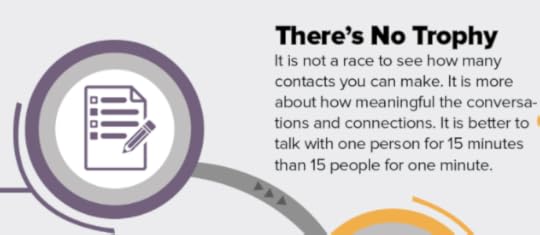
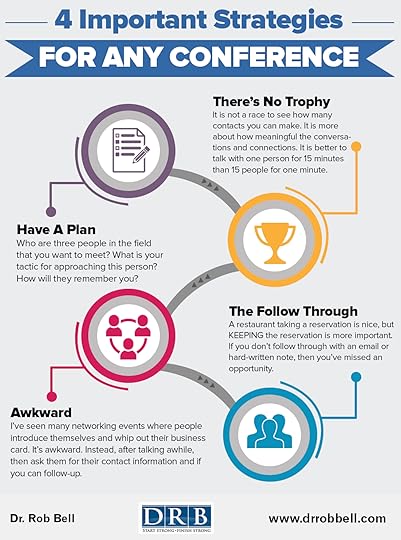
No one wants professional conferences to be like a middle school dance. You know hanging out only with your friends, afraid to ask someone to dance, hiding in the bathroom, OR worse, stuck in a nowhere conversation. Here’s 4 important networking strategies for any conference.
4 Important Strategies for Any Conference
Here’s an example: The Follow-Through A restaurant taking a reservation is nice, but KEEPING the reservation is more important. If you don’t follow through with an email or hard-written note, then you’ve missed an opportunity.
Dr. Rob Bell is a Sport Psychology Coach. His company DRB & associates is based in Indianapolis. Some clients have included: Indy Eleven, University of Notre Dame, Marriott, and Walgreens. Check out all the books on Mental Toughness
October 13, 2017
I HATE The Secret to Mental Toughness


The Secret to Mental Toughness
(Excerpt from NO ONE Gets There ALONE)
We are as only as sick as our secrets.
So, here is the secret to mental toughness (And why I HATE it).
If we want to KEEP our mental toughness, we HAVE to give it away.
We can not help other people WITHOUT also helping ourselves! If I tell my daughter that she can NEVER give up, that same exact voice echoes in my head if I want to quit or stop.
That’s the secret to mental toughness! You have to give it away to keep it.
If we help others to just keep moving, then we will keep moving. If we encourage others to not give up, then we persevere as well. If we share with someone else the importance of confidence, then we can’t help but help ourselves with being more confident.
When we communicate with someone else not to let a situation bother him or her, then we help ourselves by not allowing our own junk to bother us. Even if we are going through a tough period in life, if we do not isolate, but connect with others, then a better us starts to make a better you.
If we help enough people reach their goals; then we will reach ours.
I HATE the secret because I KNOW THE ANSWER, but knowing and doing are two different things. And I can’t stand being reminded of the answer!
Mental Toughness is not mental toughness when things are going great! [Tweet “Mental Toughness is not mental toughness when things are going great! Mental Toughness is not mental toughness when things are going great!]
I HATE the secret to Mental Toughness because when I am NOT confident, I isolate. I don’t share with others how they can be confident. I feel like a hypocrite. I feel I am of NO use to anyone else and that my experience is questionable.
Why would I want to bring other people down with my junk anyway? But, if I stay in that space, the more I need others! We can’t coach ourselves…
Mental Toughness is not a secondary goal or aspiration or a deal with ourselves, meaning if things are going well, then I will be tough. It has to be the sole focus. Before any endeavor, we need to be intentional about becoming other-person focused and giving away what we possess.
I’m in life for the miracles and there are around us everyday. The miracle for us is that we can be transformed. Allowing God to help us focus on others and to use our strengths. To give away what we want to possess in ourselves. That is the secret to mental toughness.
Dr. Rob Bell is a Sport Psychology Coach. His company DRB & associates is based in Indianapolis. Some clients have included: Indy Eleven, University of Notre Dame, Marriott, and Walgreens. Check out all the books on Mental Toughness
September 22, 2017
10 Outstanding Hacks About Disney That You Can Instantly Use.
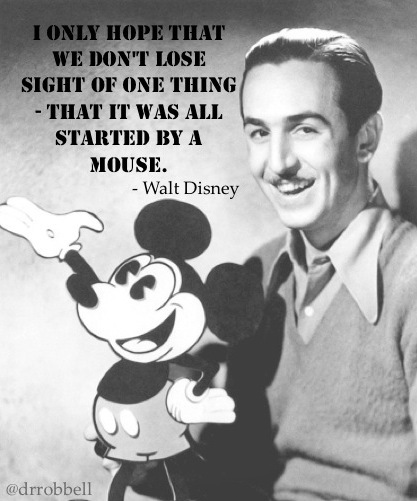
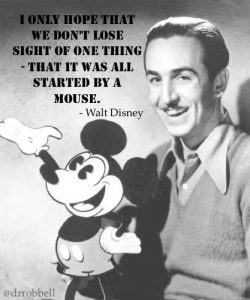
10 Outstanding Hacks About Disney That You Can Instantly Use.
Disney World opened in 1971, five years after Walt Disney died in 1966.
At the opening, someone said ” It’s too bad he wasn’t here to see it.” A reporter who spent time with Walt Disney replied ” He saw it before any of us ever did.”
I’m a strategies and tactics hound, I love inside information.
Here’s 10 Outstanding Hacks About Disney.
1. Smells & Tunes
As you enter Disney World, you may slightly notice smells, In the morning, the smells pumped out on main street are vanilla. Throughout the day, the smells change to popcorn. The music in the morning is upbeat and lively. During the evening, the music is much more somber and calming…. As you leave Magic Kingdom, you’ll get an urge to buy something!
HACK: If you want to avoid the crowd at the end of the day, the stores on the right are all connected, breeze through there to leave.
2. Ask a Cast Member
Everyone is a cast member, and there isn’t much better customer service in the world than Disney. Here’s proof. If you ask any cast member for directions, they don’t point and tell you, they will walk you to where you want to go. I test it by asking cast members who are sweeping the streets or cleaning up.
3. Trashcans
Walt Disney designed closed trashcans so the bad smells didn’t escape. They all have two sides on them so someone can use it walking in both directions. Also, he researched how long it took people to finish their food while walking. If you check, trashcans are 30-40 feet away from each other.
4. Eats
At Magic Kingdom, eat at Liberty Tavern, It’s an all-you can eat family style dinning. Eat a late lunch, and you’ll be satisfied all day. Ask for servers Chris or Selina.
Want some character dining? Eat breakfast at the Crystal Palace. Desire Mickey & Minnie and friends by eating an early dinner at Hollywood & Vine.
At HollyWood studios, make reservations at SciFi Dine In theatre.
5. Dinglehopper
During the Magic Kingdom festival of fantasy parade at 3:00, you’ll want to watch it in front of the Liberty Tavern. (eat and walk out front). Take a fork outside with you, when Ariel goes by, if you show her your “dinglehopper”, she’ll take hers out and wave it back to you!
6. Gaston
Outside of Gaston’s place in Magic Kingdom, challenge him to push-ups and he’ll drop and go! One of my favorites. He’ll bust out one handed push-ups though.
7. Tower of Terror
There become two lines at the Tower of Terror, when it splits near the ride entrance, go straight! You’ll get an extra drop! This is one of my favorite 10 outstanding hacks about Disney. Who doesn’t love more ride?
8. Best Ride Ever
Toy Story Mania. end of story! Fast Pass this ride early and ride it often. Waits are 90 minutes later in day for a reason! Youtube it on scoring secrets.
9. The Lion at Animal Kingdom
My man, Coach Bru told me about this one. He asked “was the lion on the rock during the safari at Animal Kingdom?” It was! The rock is climate cooled! Cool in the summer and warm in the winter so everyone will most likely see the lion.
10. Fantasmic
Don’t miss this show! Eat at Minnie’s Hollywood & Vine and you’ll also get seating in the center of the show. No need to wait for seats off to the side.
Hope you enjoyed these 10 outstanding hacks about Disney. Can you share some of yours?
Dr. Rob Bell is a Sport Psychology Coach. His company DRB & associates is based in Indianapolis. Some clients have included: Indy Eleven, University of Notre Dame, Marriott, and Walgreens. Check out all the books on Mental Toughness
10 Outstanding Hacks About Disney That You Can Use.


10 Outstanding Hacks About Disney That You Can Use (on vacation or life).
Disney World opened in 1971, five years after Walt Disney died in 1966.
At the opening, someone said ” It’s too bad he wasn’t here to see it.” A reporter who spent time with Walt Disney replied ” He saw it before any of us ever did.”
I’m a strategies and tactics hound, I love inside information.
Here’s 10 Outstanding Hacks About Disney.
1. Smells & Tunes
As you enter Disney World, you may slightly notice smells, In the morning, the smells pumped out on main street are vanilla. Throughout the day, the smells change to popcorn. The music in the morning is upbeat and lively. During the evening, the music is much more somber and calming…. As you leave Magic Kingdom, you’ll get an urge to buy something!
HACK: If you want to avoid the crowd at the end of the day, the stores on the right are all connected, breeze through there to leave.
2. Ask a Cast Member
Everyone is a cast member, and there isn’t much better customer service in the world than Disney. Here’s proof. If you ask any cast member for directions, they don’t point and tell you, they will walk you to where you want to go. I test it by asking cast members who are sweeping the streets or cleaning up.
3. Trashcans
Walt Disney designed closed trashcans so the bad smells didn’t escape. They all have two sides on them so someone can use it walking in both directions. Also, he researched how long it took people to finish their food while walking. If you check, trashcans are 30-40 feet away from each other.
4. Eats
At Magic Kingdom, eat at Liberty Tavern, It’s an all-you can eat family style dinning. Eat a late lunch, and you’ll be satisfied all day. Ask for servers Chris or Selina.
Want some character dining? Eat breakfast at the Crystal Palace. Desire Mickey & Minnie and friends by eating an early dinner at Hollywood & Vine.
At HollyWood studios, make reservations at SciFi Dine In theatre.
5. Dinglehopper
During the Magic Kingdom festival of fantasy parade at 3:00, you’ll want to watch it in front of the Liberty Tavern. (eat and walk out front). Take a fork outside with you, when Ariel goes by, if you show her your “dinglehopper”, she’ll take hers out and wave it back to you!
6. Gaston
Outside of Gaston’s place in Magic Kingdom, challenge him to push-ups and he’ll drop and go! One of my favorites. He’ll bust out one handed push-ups though.
7. Tower of Terror
There become two lines at the Tower of Terror, when it splits near the ride entrance, go straight! You’ll get an extra drop! This is one of my favorite 10 outstanding hacks about Disney. Who doesn’t love more ride?
8. Best Ride Ever
Toy Story Mania. end of story! Fast Pass this ride early and ride it often. Waits are 90 minutes later in day for a reason! Youtube it on scoring secrets.
9. The Lion at Animal Kingdom
My man, Coach Bru told me about this one. He asked “was the lion on the rock during the safari at Animal Kingdom?” It was! The rock is climate cooled! Cool in the summer and warm in the winter so everyone will most likely see the lion.
10. Fantasmic
Don’t miss this show! Eat at Minnie’s Hollywood & Vine and you’ll also get seating in the center of the show. No need to wait for seats off to the side.
Hope you enjoyed these 10 outstanding hacks about Disney. Can you share some of yours?
Dr. Rob Bell is a Sport Psychology Coach. His company DRB & associates is based in Indianapolis. Some clients have included: Indy Eleven, University of Notre Dame, Marriott, and Walgreens. Check out all the books on Mental Toughness
September 15, 2017
How to Get Your Second Wind in Life!
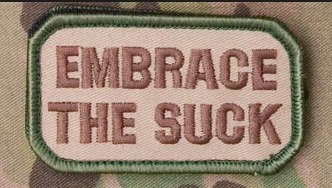
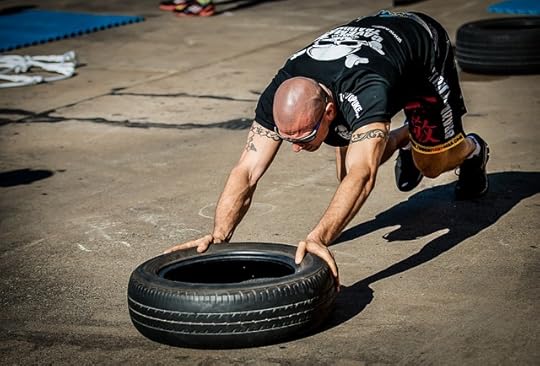
How to Get Your Second Wind In Life
When I was training for one of my marathons, I HAD to get my run in late one evening.
It was dark, I was tired. I wanted to rest, but I went anyway.
I’m so thankful I did!
I ran 5 miles and I experienced the runner’s high. It’s like jumping out of an airplane, it’s tough to describe. I was moving so quickly, so effortlessly, and so fast. I was overcome with so many feel good emotions that I almost cried. It was the best feeling in the world and one I can still remember today!
After 15 years of running, I’ve had great runs of course, but hitting the runner’s high is special, like an eclipse, it happens only ever so often.
I’ve experienced the greatest phenomenon twice. Just twice!
On the other shoe, almost every run I currently do, I rely on my second wind… In the first 800 meters or mile, I am slow, heavy, and my breathing is labored! I actually start to wonder, what’s the matter?
Before you get your second wind, there’s a little bit of panic, anxiety, stress, and discomfort.
Soon though, the second wind kicks in.
In everyday life, we rarely operate in the space where EVERYTHING just flows perfectly and doves fly around when we enter the room and the trumpets roar!
Nah, it’s a struggle. We are training, preparing, and focusing on the details on our craft. We are advised to EMBRACE THE SUCK! The suck is the farthest thing from a peak experience!
Here’s how to get your second wind.
1. Know Your Why-
If we are running and we start to walk, then walking becomes easier later on. If quitting is an option, then we take it. Quitting then becomes easier later on. We must know our own why! If we know our why, then we can come up with any how. It begins each day with a check-in with ourselves. What’s your goal? What’s your purpose? Who are you connecting with?
2. Don’t Stop-
My wife was going to break 2 hrs for a 1/2 marathon. I was running with her, pacing. It was going to be close! On the very last slight up-hill, 300 yards from the finish, SHE STOPPED! I screamed at her to get going! She finished in 1:59:52.
No matter how bad something hurts in our life, there is an end point. Every workout ENDS! Every pain period we are going through will stop! Hard times do not come to stay, they come to pass!
Remember, even slow walkers arrive!
But, IF you STOP, then all bets are off. How often does someone start college, take a semester or year break, THEN comeback. RARE!
You have to keep moving to get your second wind!
3. Find Your Rhythm-
Everything has a rhythm!
Life has momentum!
In the court room, the best defense is to “object.” It gets the other lawyer off their rhythm! Tennis players go back to their towel, Baseball hitters step in & out of the box. All intended to get you off of your rhythm.
Find your rhythm, breath, get back to your routine. Breath, get back to your routine. Breath, reset, re-focus, get back to your routine. Oh yes, and breathe.
4. Patience-
We want our second wind NOW. And sometimes we get it.
But, we just don’t know when our second wind will come. We can’t know. All that is certain is that if we go through the motions, if we check-out, if we start looking for the exit, then, our second wind won’t happen!
I had an athlete tell me, “I can’t wait to be patient.”
I get it.
Patience a higher-order skill and one in which we do not practice today. I can guarantee you that your second wind is coming, if you just hang on long enough.
Dr. Rob Bell is a Sport Psychology Coach. His company DRB & associates is based in Indianapolis. Some clients have included: Indy Eleven, University of Notre Dame, Marriott, and Walgreens. Check out all the books on Mental Toughness
September 8, 2017
Mental Toughness is a Voicemail Away


Mental Toughness is a Voicemail Away
One speaking event at my alma mater, Shepherd University, I made sure to invite my professor, Dr. Joe Merz. He made such an impact in my life. If not for him, then Sport Psychology and the passion I live out everyday would not have happened.
I received a voicemail from him after the event.
The voicemail was about a minute long and went in-depth about and what an amazing job I did and how proud and impressed he was.
It felt good. I saved it. It built up my Mental Toughness. It’s still on my phone today.
That same week though, I probably left a dozen voicemail and text messages to various people. But, I could not begin to tell you what I said or wrote.
We can listen to all of our voicemail messages right now on our phone. But, we have no idea that messages we left during that same time.
Life is the same way.
We remember the most impactful people in our lives. But, we often have no idea the impact we made on someone else. We can’t know.
On a much simpler level, perhaps we remember the person who waved to us today or held the door. But, we don’t know the effect of our own kind gesture today.
We are literally and figuratively leaving voicemails all the time for people and it makes a difference, good or bad.
If we want to KEEP our mental toughness, we HAVE to give it away.
Every transaction we have with someone has the potential to be transformative. We can’t know who or what will be the hinge. People will remember how we made them feel even for an instant and it has the potential to connect them to someone else.
So are we intentional about our messages?
We give away what we possess ourselves. All of us has fired off an angry email or perhaps left a not-so-friendly voicemail. If we are filled with resentment, contempt, hatred, or lack of confidence, then that is the message of our transactions. It usually effects those closest to us as well.
However, if we can be deliberate about leaving messages that are encouraging, positive, filled with confidence and hope, then a miracle occurs. We actually start to leave ourselves a message. If we act and behave in ways that are focused on others and building their own mental game, then we act our way into right thinking and our own mood and outlook changes.
That’s how Mental Toughness works. We have to give it away to keep it.
Dr. Rob Bell is a Sport Psychology Coach. His company DRB & associates is based in Indianapolis. Some clients have included: Indy Eleven, University of Notre Dame, Marriott, and Walgreens. Check out all the books on Mental Toughness
August 25, 2017
Why Unemployment Motivates Me


Why Unemployment Motivates Me
There is a folder on my desktop with unemployment as the title.
My wife and I were both employed at the same University. I left my professorship in 2011 to catch up with my passion. So, I started my own Sport Psychology company helping teams and leaders build mental toughness.
My wife stayed on teaching and mentoring. If it weren’t for her support or God, I would have had to ask my dreams where they were going, because I was staying.
I would have had to ask my dreams where they were going, because I was staying.
Click To Tweet
God was huge because leaving my position was a leap of faith, so I asked God for a sign if this was correct. A real sign! Yes, I asked. Now, this is my experience, but I audibly heard “It’s going to be okay.” I’ve only heard this one other time and in both situations, God was right.
I cut bait at the University and in the first few months of my new business, I was at The Masters for the entire week with one of my golfers, riding up Magnolia Lane every day, and enjoying the best event ever. It was my favorite week up to that point professionally.
Less than two months later, I was fired.
See, I didn’t know this at the time, but I’ve been fired MORE times AFTER my teams or athletes have had success than when they failed. Huh? Think about it, helping professional athletes reach success means they’ve reached their goals; so you’re no longer needed on retainer. Not always of course, but it happens.
Later that summer just two weeks before the college semester began, my wife received an email stating that her position was no longer needed. Fired. Bam. Done.
Two weeks before college classes started was a problem. No one was hiring educators at that time of the year. Seven years at the University and abruptly let go was not a good spot to be.
I hadn’t built up the business enough to sustain both of us, we had two kids under four, and we also needed the health insurance.
Faith isn’t really faith until it’s all you’ve got.
I tried to hire her for my business, but I couldn’t afford her full-time. I did the only thing I could which was stay hustling. My pride was severely hurt and the evil head trash began “ Aren’t you supposed to provide?” “Are you good at what you do?” “What are we going to do?”
But, that wasn’t the hardest part.
She was the one who went through the suck.
The unemployment office.
Here was an educator with a Masters degree, almost twelve years in higher education, forced to take a class on how to write a resume and apply for entry-level jobs. She felt like a criminal because she had to prove her position was absolved and not trying to “work the system.” It was the most humbling experience of her life.
Faith isn’t faith until it’s all you’ve got.
A few months later she found a new online position mentoring students, but it was massive transition.
The unemployment folder remains on my desktop.
It’s a reminder. A nudge. Motivation that someone else is working right now, so you can either get better or stay bitter.
Funny how many successful people I’ve met that have been driven stronger by fear than success.
I’ve always grinded because I had a fear of what exactly happened, losing a position. Now, we can’t live or operate out of fear because that is suffocating and not joyful. But occasionally peaking at fear adjusts our focus to dig deep.
That’s why unemployment motivates me.
That’s why failure drives me.
I am blessed that business thrives today and we get to coach so many lives. God provided along this entire journey.
Dr. Rob Bell is a Sport Psychology Coach. His company DRB & associates is based in Indianapolis. Some clients have included: Indy Eleven, University of Notre Dame, Marriott, and Walgreens. Check out all the books on Mental Toughness
August 18, 2017
Everyone is an Athlete, BUT Our Office is Different
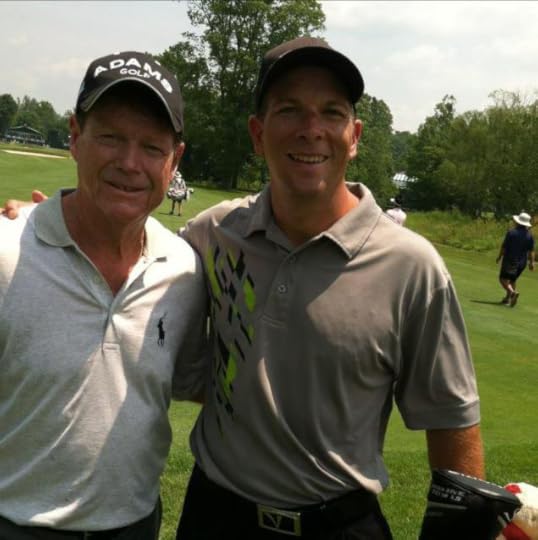
Everyone Is An Athlete, BUT Our Office is Different
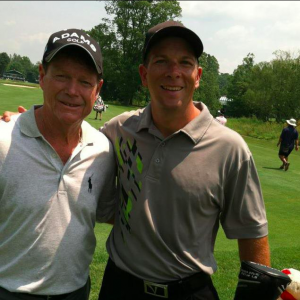
I was caddying for one of my golfers at a PGA Tour event at The Greenbrier in West Virginia. During a practice round, we played with Tom Watson for the entire day. What a treat! As we were walking down one of the fairways, he put his arm around me and said, “This is such a nice office.”
I’ve been borrowing that line ever since because it is true.
—
Everyone is an athlete our office is just different. Some of us are corporate athletes or entrepreneur athletes. Being an athlete is an attitude and awareness. It means looking through our own lens of life as an athlete.
First, as an athlete, we compete.
Competition has always been part of humanity, ecology, and biology and at its basic level, competition for space or resources. Some are drawn toward this type of competition while others often shy away from it.
However, true competition is me vs. me.
Too often is only viewed as an “I win and you lose” concept. This viewpoint of competition has been easily perverted into trying to beat someone else, which turns into a mindset of there can only be one winner. We confuse competition only against some other opponent and thus create a mindset of scarcity, fear, and isolation. See with the “I win, you lose game”, the opponent can become anyone outside of ourselves, even our own teammates or co-workers. The scarcity is born from there can only be one promotion, one president, one “winner”, so it must be me.
Competition against ourselves isn’t easy. It is easier to focus on beating others rather than ourselves, because competing against ourselves is much slower and deliberate. We are quick to improve our circumstances or our situation, but not ourselves.
Competition against ourselves is the most difficult part because we already know everything about…
Click To Tweet
Competition against ourselves is the most difficult part of being an athlete because we already know everything about our opponent.
Competition is especially difficult because we can compete in everything we do.
We compete against ourselves is most all that we do. When waking up in the morning and rising as soon as the alarm goers off to letting go of a resentment we have against someone else. It’s a competition against ourselves if we will refuse that piece of cake or get that workout in or wake up when our alarm goes off or help out someone else.
We can compete in our job, our relationships, and our physical endeavors. We can compete in being a friend, a spouse, father, mother, teacher, etc. We do not always compete against others, but against a much tougher opponent, ourselves. Competition is about challenging ourselves about how good that we can become
When we focus on becoming the best version of ourselves, it means that there are setbacks, pain, adversity, suffering, struggle, and learning. However, there will also be growth, joy, thanksgiving, satisfaction, and true success.
Second, being an athlete means being in shape.
When we show up to our office, we need to be conditioned. Yes, there is some physical fitness to our lives, and an over all well-being. But, obviously, “everyone is an athlete” mentality doesn’t mean that we need to be able to play 90 minutes of a top-level soccer game.
Being well-conditioned means that we show up early, are able to be present, deal with others in effective manners, commit and contribute to the overall mission, and simply be other person focused.
Third, as an athlete, we are are always training, practicing and preparing.
A funny thing about competition and practice is that we will practice WAY more than we will ever actually compete.
How many tennis balls have a Wimbledon champion hit in their entire life? How many mountain climbs has someone done before a successful first ascent? How many range balls or simple practice rounds has a Masters champion finished, or practices has an NCAA Volleyball champion completed?
An athlete competing in the Olympics will have just one event or at most maybe a couple events. Thus, 99% of their time invested in the previous four years has been in preparation.
We will practice more than we will ever actually perform. Thus, our preparation is in many regards more important than our actual competition because when our moment arrives, it’s too late to prepare. We will need to be ready because we do not know when or who will be our hinge moment. That’s why everyone is an athlete.
Dr. Rob Bell is a Sport Psychology Coach. His company DRB & associates is based in Indianapolis. Some clients have included: Indy Eleven, University of Notre Dame, Marriott, and Walgreens. Check out all the books on Mental Toughness
August 11, 2017
Are you a CRAZY relentless competitor?

Relentless Competitor

You don’t need to be crazy about your preparation, but you need to be consistent!
Coaches look for signs of toughness.
However, Many athletes do not truly max out their effort until they think it is an “important” game, opponent, or audience.
Some “gamers” coast along early and only perform their best effort when they fall behind or the contest is close. They believe in the light-switch mentality! Others quit working hard and believing when behind, subconsciously thinking that a comeback is too unlikely to deserve their best effort.
However, Coasting is not the only reason athletes fail to be a relentless competitor!
“Normal” competitors have trouble staying confident when things are NOT going well, and they do not perform as well.
Some athletes are negative at external conditions–when it is too cold, hot, steep, bumpy, far, dry, wet, or dirty.
Many lose intensity in particular situations when they perceive their teammates are putting forth less than ideal effort. All of these examples represent a lack of mental toughness, a lack of grit, and a missed opportunity.
Are you Relentless?
Describing a competitor as relentless is high praise.
They work hard all the time!
To be relentless, you must get to know your own strengths and weaknesses. They make adjustments continually. Staying within their comfort zone is not important to them. Winning is.
They have the will to win, but they really have the will to prepare! There is a big difference between saying they want these things and acting it out. Andrew Carnegie said, “The average person puts only 25% of his energy and ability into his work. The world tips its hat to those who devote more than 50% of their capacity, and stands on its head for those few and far between souls who devote 100%.”
The relentless competitor motto is, “best effort – one play at a time.” They bring their best at practice!! Their best effort is what is expected– Not any less. Leaders appreciate the importance of practice, the importance of now, the importance of habits. Therefore, they take care of their bodies with good nutrition, weight training, flexibility work, stress and time management.
Relentless competitors hang out with each other. We are the average of the five closest people we hang out with. A teammate, competitor, friend, supervisor, colleague, coach, or family member and they go out of their way to spend time with that person. Confidence is contagious and so is relentlessness. Some teammates hate these type of grinders, because it exposes how hard “they” work.
Relentlessness gets an athlete to their goal, but a lack of persistence keeps them from it. “Relentlessness is a good quality. I don’t care what you do for a living,” said Hall of Fame baseball manager Tony LaRussa.
Self-assess your relentlessness
At the end of each day, give yourself a relentlessness grade on a scale of 1-10. Then, at the beginning of the next day, set a goal that is higher. Who is it that you want to “be?” Relentlessness takes commitment and being able to measure your progress is crucial.
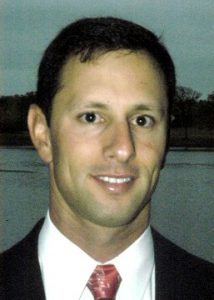 Aaron Weintraub is a mental skills coach, author, and speaker based in Grand Junction, CO, where he lives with his wife, Nicole, and their five children. He was a college baseball coach for a dozen years before turning his focus exclusively to training mental skills in 2006. He has spoken at national baseball, softball, and football conventions and authored three books, including Leadership Training for Softball. For more information, please visit his websites: www.CoachTraub.com, www.SmileNowCoach.com (blog), www.BaseballMentalMaster.com, or www.SoftballMentalMaster.com.
Aaron Weintraub is a mental skills coach, author, and speaker based in Grand Junction, CO, where he lives with his wife, Nicole, and their five children. He was a college baseball coach for a dozen years before turning his focus exclusively to training mental skills in 2006. He has spoken at national baseball, softball, and football conventions and authored three books, including Leadership Training for Softball. For more information, please visit his websites: www.CoachTraub.com, www.SmileNowCoach.com (blog), www.BaseballMentalMaster.com, or www.SoftballMentalMaster.com.





